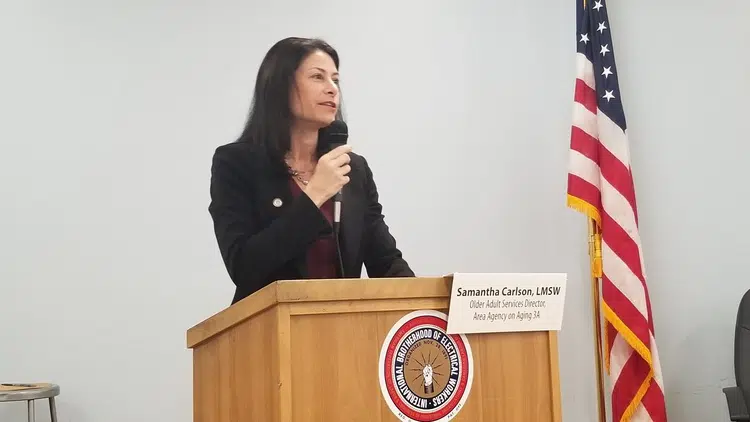LANSING, MI (WKZO AM/FM) — The Office of Michigan Attorney General Dana Nessel reported Tuesday that it has recently sent a cease and desist letter to a Kalamazoo man for failing to follow through on hundreds of orders for screen-printed T-shirts totaling nearly $38,000 in purchases.
The letter was sent Wednesday to Kalamazoo Screen Printing LLC and Inspiring Clothing, which advertised that a portion of its T-shirt sales revenue would be donated to charitable causes like suicide prevention or cancer organizations, though Nessel’s office said that allegedly was never the business owner’s intent.
However, the business’s successful social media marketing campaign overwhelmed its 20-year-old owner with hundreds of T-shirt orders he could not fill. Requests for refunds when consumers never received their products also allegedly went unaddressed for months.
Nessel’s office says the owner calls himself Becky Watts on his business webpage and he admitted to using a stock photo of a female and infant for marketing purposes.
More than 100 consumers complained to the Better Business Bureau about the online storefront, Inspiring Clothing. At least 14 of those came from Michigan residents.
“My office will not tolerate anyone making false claims on the internet for profit, and those who collect money for a product need to be in a position to deliver it – no matter their age,” Nessel said in a statement. “Misrepresenting goods and services is not only poor customer relations, it’s a violation of consumer protection laws. Businesses that lie to customers have no place in Michigan.”
The business owner told investigators from the Attorney General’s office that he hired an outside consultant from the United Kingdom to manage the Facebook advertising for the company, and that the consultant marketed the charitable contributions aspect of the business without the owner’s knowledge.
Instead, none of the business proceeds were being donated to charity.
In mid-June, the business owner provided information to the Attorney General’s office showing nearly 1,000 unfulfilled orders, which totaled just over $37,946. Several days after the initial contact, investigators followed up with the owner and were told the unfulfilled orders would be shipped to consumers in three to four days.
However, the Attorney General’s office received additional complaints in August from consumers who placed orders and were still not receiving their items or refunds. After following up with customers who made purchases earlier in the year, it was discovered that several more had still not received their purchased goods or refunds.
The business may be in violation of the Michigan Consumer Protection Act for:
- Failing to reveal a material fact, the omission of which tends to mislead or deceive the consumer, and which fact could not reasonably be known by the consumer;
- Failing to promptly provide consumers with
refunds; - Gross discrepancies between the oral representations of the seller and the written agreement covering the same transaction or failure of the other party to the transaction to provide the promised benefits;
- Making a representation of fact or statement of fact material to the transaction such that a person reasonably believes the represented or suggested state of affairs to be other than it actually is.
The Attorney General’s office may launch a formal investigation or initiate legal action, or the business owner could enter into an assurance of voluntary compliance, which allows the matter to be settled outside of court.





